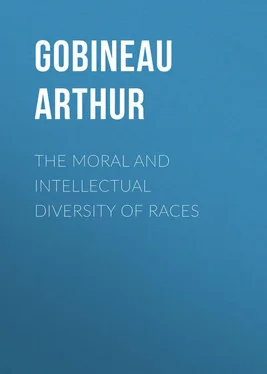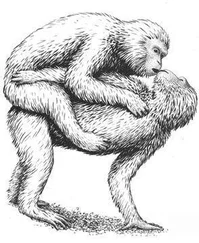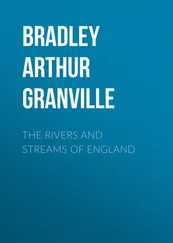Arthur Gobineau - The Moral and Intellectual Diversity of Races
Здесь есть возможность читать онлайн «Arthur Gobineau - The Moral and Intellectual Diversity of Races» — ознакомительный отрывок электронной книги совершенно бесплатно, а после прочтения отрывка купить полную версию. В некоторых случаях можно слушать аудио, скачать через торрент в формате fb2 и присутствует краткое содержание. Жанр: История, foreign_antique, foreign_prose, на английском языке. Описание произведения, (предисловие) а так же отзывы посетителей доступны на портале библиотеки ЛибКат.
- Название:The Moral and Intellectual Diversity of Races
- Автор:
- Жанр:
- Год:неизвестен
- ISBN:нет данных
- Рейтинг книги:4 / 5. Голосов: 1
-
Избранное:Добавить в избранное
- Отзывы:
-
Ваша оценка:
- 80
- 1
- 2
- 3
- 4
- 5
The Moral and Intellectual Diversity of Races: краткое содержание, описание и аннотация
Предлагаем к чтению аннотацию, описание, краткое содержание или предисловие (зависит от того, что написал сам автор книги «The Moral and Intellectual Diversity of Races»). Если вы не нашли необходимую информацию о книге — напишите в комментариях, мы постараемся отыскать её.
The Moral and Intellectual Diversity of Races — читать онлайн ознакомительный отрывок
Ниже представлен текст книги, разбитый по страницам. Система сохранения места последней прочитанной страницы, позволяет с удобством читать онлайн бесплатно книгу «The Moral and Intellectual Diversity of Races», без необходимости каждый раз заново искать на чём Вы остановились. Поставьте закладку, и сможете в любой момент перейти на страницу, на которой закончили чтение.
Интервал:
Закладка:
This subject has met with the attention which its importance deserves, at the hands of Mr. Gobineau, and he also shows the fallacy of the idea that Christianity will remove the mental inequality of races. True religion, among all nations who are blessed with it and sincerely embrace it, will purify their morals, and establish friendly relations between man and his fellow-man. But it will not make an intellectually inferior race equal to a superior one, because it was not designed to bestow talents or to endow with genius those who are devoid of it. Civilization is essentially the result of man's intellectual gifts, and must vary in its character and degree like them. Of this we shall speak again in treating of the specific differences of civilization , when the term Christian civilization will also be examined.
One great reason why so many refuse to recognize mental as well as physical differences among races, is the common and favorite belief of our time in the infinite perfectibility of man. Under various forms this development-theory, so flattering to humanity, has gained an incredible number of adherents and defenders. We believe ourselves steadily marching towards some brilliant goal, to which every generation brings us nearer. We look with a pity, almost amounting to contempt, upon those who preceded us, and envy posterity, which we expect to surpass us in a ratio even greater than we believe ourselves to surpass our ancestors. It is indeed a beautiful and poetic idea that civilization is a vast and magnificent edifice of which the first generation laid the corner-stone, and to which each succeeding age contributes new materials and new embellishments. It is our tower of Babel, by which we, like the first men after the flood, hope to reach heaven and escape the ills of life. Some such idea has flattered all ages, but in ours it has assumed a more definite form. We point with pride to our inventions, annihilating – we say – time and distance; our labor-saving machines refining the mechanic and indirectly diffusing information among all classes, and confidently look forward to a new era close at hand, a millennium to come. Let us, for a moment, divest ourselves of the conceit which belongs to every age, as well as to every country and individual; and let us ask ourselves seriously and candidly: In what are we superior to our predecessors? We have inventions that they had not, it is true, and these inventions increase in an astonishing ratio; we have clearer ideas of the laws which govern the material world, and better contrivances to apply these laws and to make the elements subservient to our comfort. But has the human mind really expanded since the days of Pythagoras and Plato? Has the thinker of the nineteenth century faculties and perceptions which they had not? Have we one virtue more or one vice less than former generations? Has human nature changed, or has it even modified its failings? Though we succeed in traversing the regions of air as easily and swifter than we now do broad continents and stormy seas; though we count all the worlds in the immensity of space; though we snatch from nature her most recondite secrets, shall we be aught but men? To the true philosopher these conquests over the material world will be but additional proofs of the greatness of God and man's littleness. It is the vanity and arrogance of the creature of clay that make him believe that by his own exertions he can arrive at God-like perfection. The insane research after the philosopher's stone and the elixir of life may be classed among the many other futile attempts of man to invade the immutable decree: "Thus far, and no farther." To escape from the moral and intellectual imperfections of his nature, there is but one way; the creature must humbly and devoutly cast himself into the ever-open arms of the Creator and seek for knowledge where none knocketh in vain. This privilege he has enjoyed in all ages, and it is a question which I would hesitate to answer whether the progress of physical science has not, in many cases at least, rather the effect of making him self-sufficient and too confident in his own powers, than of bringing him nearer to the knowledge of the true God. It is one of the fatal errors of our age in particular, to confound the progress of physical science with a supposed moral progress of man. Were it so, the Bible would have been a revelation of science as well as of religion, and that it is not is now beginning to be conceded, though by no means so generally as true theology would require; for the law of God was intended for every age, for every country, for every individual, independent of the state of science or a peculiar stage of civilization, and not to be modified by any change which man might make in his material existence. With due deference, then, to those philosophers who assert that the moral nature of the human species has undergone a change at various periods of the world's history; and those enthusiasts who dream of an approaching millennium, we hold, that human nature has always been the same and always will be the same, and that no inventions or discoveries, however promotive of his material well-being, can effect a moral change or bring him any nearer to the Divine essence than he was in the beginning of his mundane existence. Science and knowledge may indeed illumine his earthly career, but they can shed no light upon the path he is to tread to reach a better world.
Christ himself has recognized the diversity of intellectual gifts in his parable of the talents, from which we borrow the very term to designate those gifts; and if, in a community of pure and faithful Christians, there still are many degrees and kinds of talents, is it reasonable to suppose that in that millennium – the only one I can imagine – when all nations shall call on His name with hope and praise, all mental imparities of races will be obliterated? There are, at the present time, nations upon whom we look down as being inferior in civilization to ourselves, yet they are as good – if, indeed, not better – Christians than we are as a people. The progress of physical science, by facilitating the intercourse between distant parts of the world, tends, indeed, to diffuse true religion, and in this manner – and this manner only – promotes the moral good of mankind. But here it is only an instrument, and not an agent, as the machines which the architect uses to raise his building materials do not erect the structure.
One more reason why the unity of the human species cannot be considered a proof of equal intellectual capability of races. It is a favorite method of naturalists to draw an analogy between man and the brute creation; and, so far as he belongs to the animal kingdom, this method is undoubtedly correct and legitimate. But, with regard to man's higher attributes, there is an impassable barrier between him and the brute, which, in the heat of argument, contending parties have not always sufficiently respected. The great Prichard himself seems sometimes to have lost sight of it. 7 7 Vide Prichard's Natural History of Man , p. 66, et passim . "His theory," says Van Amringe, "required that animals should be analogous to man. It was therefore highly important that, as he was then laying the foundation for all his future arguments and conclusions, he should elevate animals to the proper eminence, to be analogous; rather than, as Mr. Lawrence did, sink man to the level of brutes. It was an ingenious contrivance by which he could gain all the advantages, and escape the censures of the learned lecturer. It is so simple a contrivance, too – merely substituting the word 'psychological' for 'instinctive characteristics,' and the whole animal kingdom would instantly rise to the proper platform, to be the types of the human family. To get the psychology of men and animals thus related, without the trouble of philosophically accomplishing so impossible a thing, by the mere use of a word, was an ingenious, though not an ingenuous achievement. It gave him a specious right to use bees and wasps, rats and dogs, sheep, goats, and rabbits – in short, the whole animal kingdom – as human psychical analogues, which would be amazingly convenient when conclusions were to be made." — Natural History of Man , by W. F. Van Amringe. 1848, p. 459.
Thus, he speaks of "psychological" diversities in varieties of the same undoubted species of animal, though it is obvious that animals can have no psychological attributes. But I am willing to concede to Mr. Prichard all the conclusions he derives from this analogy in favor of unity of the human species. All dogs, he believes, are derived from one pair; yet, there are a number of varieties of dogs, and these varieties are different not only in external appearance, but in what Mr. Prichard would call psychological qualities. No shepherd expects to train a common cur to be the intelligent guardian of a flock; no sportsman to teach his hounds, or their unmixed progeny, to perform the office of setters. That the characteristics of every variety of dogs are permanent so long as the breed remains pure, every one knows, and that their distinctive type remains the same in all countries and through all time, is proved by the mural paintings of Egypt, which show that, 2,000 years B. C., they were as well known as in our day. 8 8 This fact is considered by Dr. Nott as a proof of specific difference among dogs. — Types of Mankind. Phila., 1854.
If, then, this permanency of "psychological" (to take Mr. Prichard's ground) diversity is compatible with unity of origin in the dog, why not in the case of man? I am far from desiring to call into question the unity of our species, but I contend that the rule must work both ways, and if "psychological" diversities can be permanent in the branches of the same species of animals, they can be permanent also in the branches of the human family.
Интервал:
Закладка:
Похожие книги на «The Moral and Intellectual Diversity of Races»
Представляем Вашему вниманию похожие книги на «The Moral and Intellectual Diversity of Races» списком для выбора. Мы отобрали схожую по названию и смыслу литературу в надежде предоставить читателям больше вариантов отыскать новые, интересные, ещё непрочитанные произведения.
Обсуждение, отзывы о книге «The Moral and Intellectual Diversity of Races» и просто собственные мнения читателей. Оставьте ваши комментарии, напишите, что Вы думаете о произведении, его смысле или главных героях. Укажите что конкретно понравилось, а что нет, и почему Вы так считаете.












